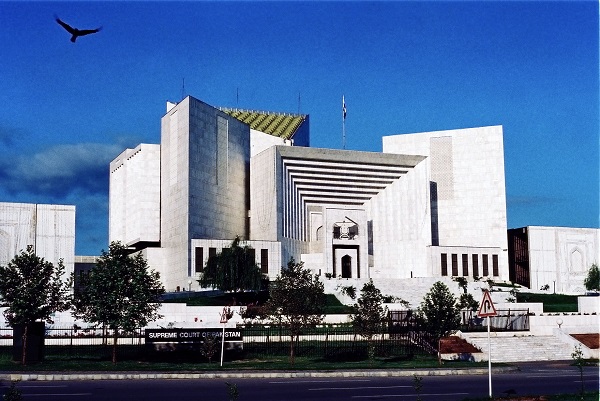WASHINGTON: The International Monetary Fund (IMF) has said that it’s still too early to determine whether ongoing discussions with
ISLAMABAD: The Supreme Court on Monday referred an electoral disqualification dispute to the three-judge committee constituted under the Supreme Court (Practice and Procedure) Act 2023.
The committee will form a larger bench to determine once and for all the raging debate on whether aspirants disqualified under Article 62(1)(f) could contest polls in light of the amendments in the Elections Act 2017.
The legal dilemma arose in view of the April 13, 2018, Supreme Court judgement in the Samiullah Baloch case, when it shut the doors of parliament permanently for politicians disqualified under Article 62(1)(f) of the Constitution through a unanimous verdict, by ruling that such ineligibility was for life.
But on June 26, 2023, an amendment was brought in the Elections Act 2017, specifying that the period of the electoral disqualification will be for five years, not for life.
Court will decide whether its verdict or Elections Act holds the field; bench warns against using case as excuse to delay polls
Headed by Chief Justice of Pakistan (CJP) Qazi Faez Isa, a three-judge Supreme Court bench ordered the matter to be placed before the committee, consisting of CJP, Justice Sardar Tariq Masood and Justice Ijazul Ahsan, to constitute the larger bench and fix it next year in Jan. The court was seized with an election dispute instituted by Sardar Imam Qasrani against Sardar Mir Bashah Khan Qaisarani.
The SC also clarified that the pendency of the present case should not be used as a tool or a pretext to delay the elections, neither by the ECP nor any other entity.
Justice Athar Minallah, a member of the bench, even cautioned that those expressing concerns about the election delay would expose themselves to contempt of court charges, affirming that the polls would be conducted on Feb 8, 2024.
While seeking assistance from Attorney General for Pakistan (AGP) Mansoor Usman Awan, provincial Advocate Generals, and ECP, the Supreme Court also ordered the publication of a public notice so that anyone or political parties become party if they wish.
The issue of electoral disqualification cropped up when the court noted that Sardar Mir Badshah Khan Qaisarani who had filed nomination papers from constituency NA-189 and PP-240 Taunsa (Dera Ghazi Khan) in the 2008 and 2018 elections, respectively, was disqualified for producing a fake graduation degree. His appeal is still pending before the Lahore High Court.
When asked, the Additional Attorney General contended that Section 232 of the Elections Act will prevail, whereas Advocate Muhammad Saqib Jillani, a counsel representing the appellant, contended that the Supreme Court had already determined the disqualification period to be for life under Article 62(1)(f).
Since the amendment in the election act has not been challenged, this matter will create confusion for the Returning Officers in the upcoming elections, who will face an impossible task either to rely on the Supreme Court judgement in the Samiullah Baloch case or the election act.
Such a situation is not conducive for the democracy, observed the CJP.
The court also seemed perplexed during the hearing, wondering how disqualification is for life if a lawmaker is involved in corruption cases, buts
You May Also Like
JABALIA: Israeli forces battled Hamas fighters in the narrow alleyways of Jabalia in northern Gaza on Friday in some of the fiercest
KURRAM: Clashes on the border between Pakistan and Afghanistan escalated on Friday, prompting large-scale displacement from






